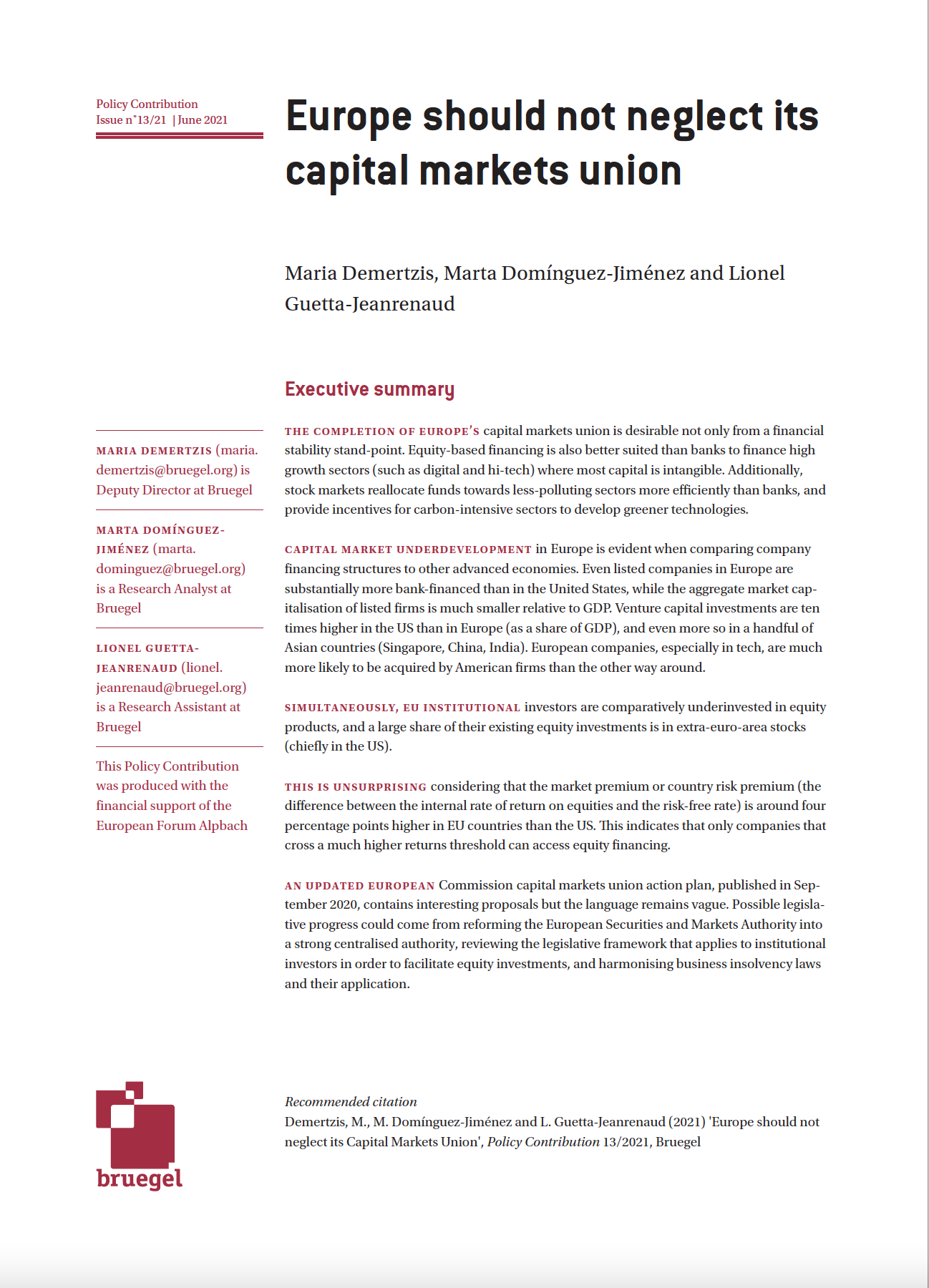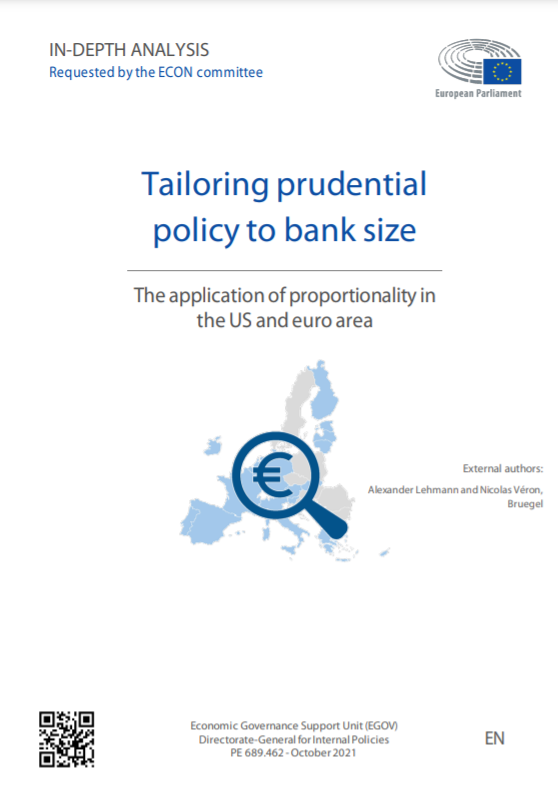Policy Contribution
Europe should not neglect its capital markets union
The European Union’s capital markets remain very underdeveloped compared to the United States. The market for equity, as measured as the size of the total market capitalisation of listed domestic firms relative to GDP, is much larger in the US and in Japan than in Europe.
This Policy Contribution was produced with the financial support of the European Forum Alpbach
The completion of Europe’s capital markets union is desirable not only from a financial stability standpoint. Equity-based financing is also better suited than banks to finance high-growth sectors (such as digital and hi-tech) where most capital is intangible. Additionally, stock markets reallocate funds towards less-polluting sectors more efficiently than banks, and provide incentives for carbon-intensive sectors to develop greener technologies.
Capital market underdevelopment in Europe is evident when comparing company financing structures to other advanced economies. Even listed companies in Europe are substantially more bank-financed than in the United States, while the aggregate market capitalisation of listed firms is much smaller relative to GDP. Venture capital investments are ten times higher in the US than in Europe (as a share of GDP), and even more so in a handful of Asian countries (Singapore, China, India). European companies, especially in tech, are much more likely to be acquired by American firms than the other way around.
Simultaneously, EU institutional investors are comparatively underinvested in equity products, and a large share of their existing equity investments is in extra-euro-area stocks
(chiefly in the US).
This is unsurprising considering that the market premium or country risk premium (the difference between the internal rate of return on equities and the risk-free rate) is around four percentage points higher in EU countries than in the US. This indicates that only companies that cross a much higher returns threshold can access equity financing.
An updated European Commission capital markets union action plan, published in September 2020, contains interesting proposals but the language remains vague. Possible legislative progress could come from reforming the European Securities and Markets Authority into a strong centralised authority, reviewing the legislative framework that applies to institutional investors in order to facilitate equity investments, and harmonising business insolvency laws and their application.
Recommended citation
Demertzis, M., M. Domínguez-Jiménez and L. Guetta-Jeanrenaud (2021) ‘Europe should not neglect its Capital Markets Union’, Policy Contribution 13/2021, Bruegel












